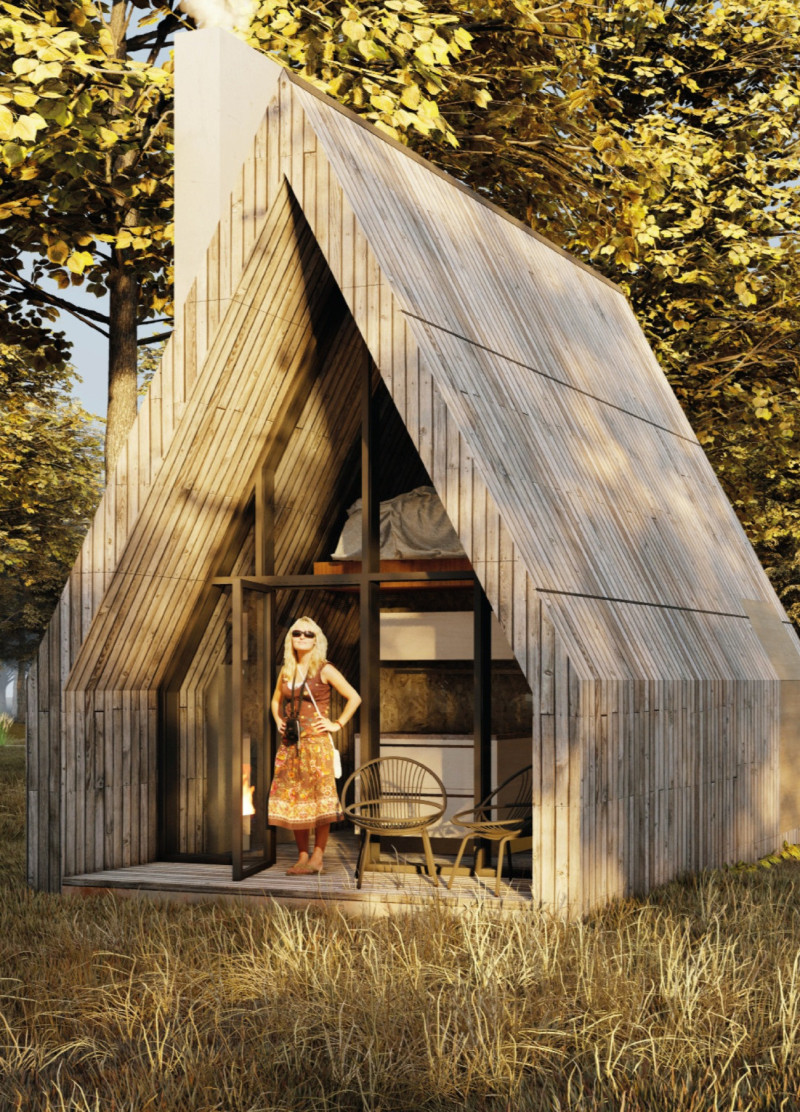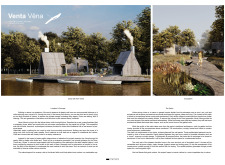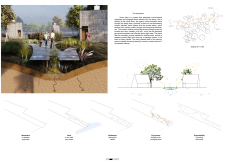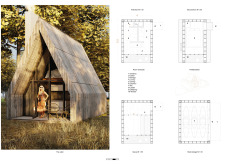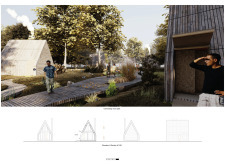5 key facts about this project
Venta Vēna is located in Latvia and focuses on connecting living spaces with the surrounding natural environment. The design centers on an approach that promotes sustainable living while respecting the landscape. Drawing inspiration from the nearby Venta River, the project aims to create a unique experience for residents and visitors alike.
Connections to Nature
The project features an organic micro-ecosystem that runs through the site. This design choice promotes a smooth transition between public and private spaces, integrating reforestation as a key element. The choice of plants not only provides privacy but also enhances local biodiversity. The overall layout fosters a sense of calm and encourages people to appreciate the area's natural beauty.
Pathways and Ecosystems
Wooden walkways connect the various buildings within the development. These paths wind over a new “river arm” designed to act as a small ecosystem. The layout accommodates natural flooding events during high water, which makes the landscape feel more dynamic. This relationship with water allows visitors to engage closely with nature while moving through the space.
Sustainable Materiality
Local timber plays a significant role in the construction of paths and cabins. This choice shows a commitment to sustainability and the importance of using materials that are readily available in the environment. By relying on local resources, the project minimizes its impact on the ecosystem while staying connected to the place itself.
Ecological Design Features
The landscaping supports a variety of plants that filter rainwater and provide habitats for small animals. These ecological elements enhance the stability of the site and improve drainage during heavy rainfalls. Newly planted trees help reduce heat in the summer, offering shaded areas that make the environment more comfortable for everyone.
The cabin design includes generously pitched roofs that reference traditional Latvian architecture. This architectural detail offers a balance between honoring local heritage and meeting modern living needs. Each cabin promotes a strong sense of belonging while remaining integrated into the lush surroundings.


